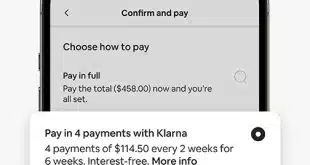The screeching slowdown in consumer spending caused by efforts to stem the spread of the Covid-19 pandemic has hit U.S. small businesses particularly hard, but there are some bright spots, according to the Electronic Transactions Association and merchant-acquiring research and consulting firm The Strawhecker Group.
The survey of more than 350 small businesses across various regions and industries from March 27-30 by TSG in collaboration with the Washington, D.C.-based ETA also confirmed bad news that other polls have found. Nearly 40% of small-business owners reported having temporarily or indefinitely closed operations as a result of the Covid-19 crisis, with restaurants, bars, and retailers taking some of the worst hits. Other suffering merchant segments include schools and non-profits.

But 31% of the ETA-TSG businesses surveyed reported an increase in sales, led by health-care providers. Some 66% of medical-related businesses surveyed reported higher sales, the two organizations said in a news release.
Meanwhile, of those merchants still taking payments on-premises, 27% reported a rise in contactless payments through smart phones and contactless cards. And card-not-present commerce is booming.
“Since the start of the pandemic, eating and drinking establishments have cut card acceptance at the terminal in their shop by half, while increasing card acceptance over the phone by two-fold,” the release says, adding that 24% of small businesses still open reported an increase in debit card use.
“As our data shows, there are definitive impacts that the Covid-19 pandemic is having on the American small business,” Mike Strawhecker, president of Omaha, Neb.-based TSG, said in the release. “But we also see bright spots in the midst of this challenging time—optimism from small-business owners and an ability to capitalize on socially distant commerce like contactless payments and online shopping.”
Another nasty pandemic effect, however, is more chargebacks and fraud. Nearly 20% of the ETA-TSG respondents reported an increase in attempted fraudulent payments and chargebacks.
In related news, American Express Co. announced several Covid-19 relief measures for its merchants and cardholders Friday. AmEx extended the amount of time merchants have to respond to a cardholder dispute to 30 days worldwide for disputes received between March 1 and May 31. An AmEx spokesperson tells Digital Transactions News by email that chargeback response times until now have varied by region and country.
AmEx also has raised its contactless transaction thresholds to reduce physical contact at the point of sale in 28 countries to date, with plans to add more countries over the next month. And AmEx reminded merchants that it does not require them to collect or provide cardholders’ signatures at the point of sale. The spokesperson says AmEx in late 2017 became the first payment network to announce that signatures would become optional worldwide.






